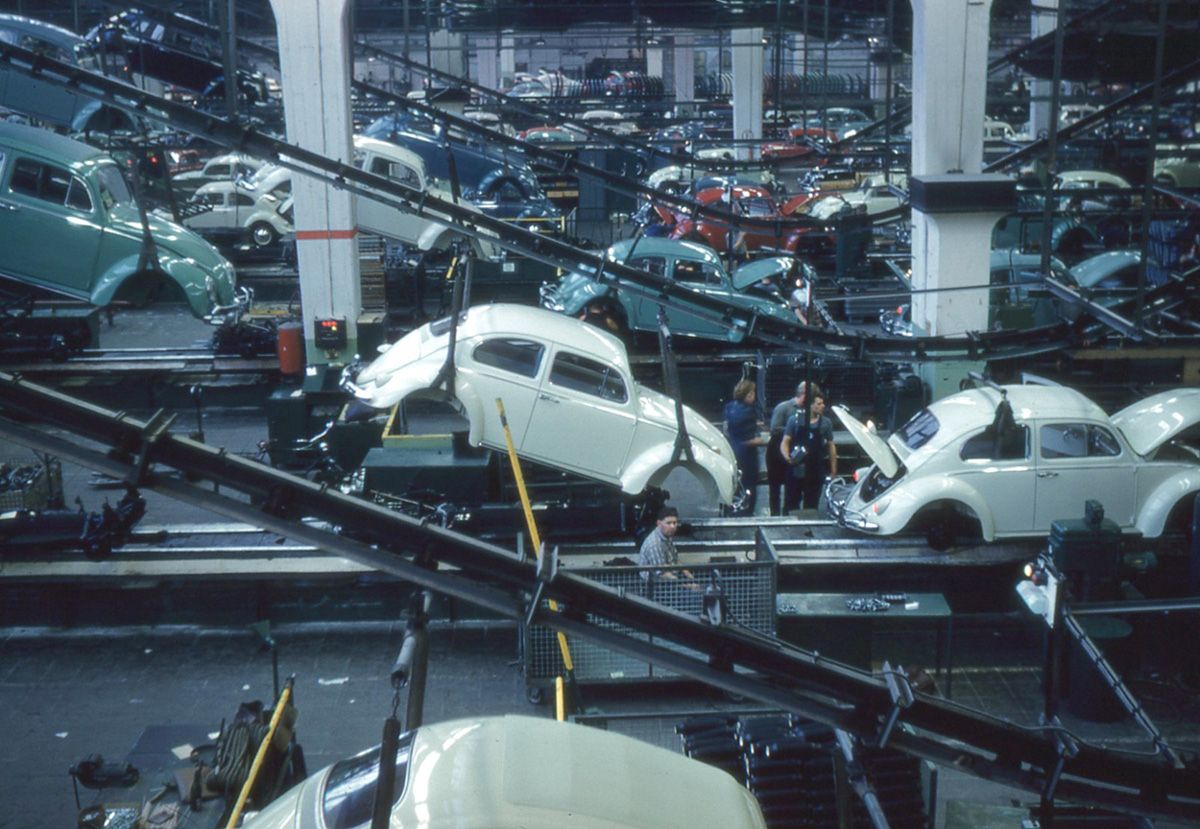|
|
TODAY.AZ / Business
Challenges and opportunities in developing automobile production sector in Azerbaijan
27 January 2024 [09:00] - TODAY.AZ

In 2023, Azerbaijan experienced an increase in car production within its industrial zones, witnessing 2.1 times year-on-year, according to the announcement by Azerbaijani Economy Minister Mikayil Jabbarov. The positive momentum in the automobile sector reflects a growth trajectory, with the number of cars produced in industrial zones escalating from 712 in 2018 to 4,233 in 2023.
Amidst this change, Farid Mehralizade, an expert in the field, speaking to Azernews, provided valuable insights into the current state of Azerbaijan's automobile production and the strategic measures needed for its improvement.
Mehralizade acknowledged the regulatory role of institutions involved in the industry, emphasizing their potential to develop incentive mechanisms. He recalled a pivotal step taken in Azerbaijan last year when locally produced cars were granted a 10-year exemption from value-added tax. According to Mehralizade, such tax concessions, along with support in areas like customs, territorial technical assistance, and other tailored measures, can significantly bolster the activities of companies engaged in car production.
“I remember that last year in Azerbaijan, a step was taken in this direction. Locally produced cars were exempted from value-added tax for 10 years. In this regard, the things they can do are these types of steps. Tax concessions, tax, customs, territorial technical support, providing certain support to the companies engaged in the production of those cars. These institutions can support the activities of companies by taking certain steps and implementing incentive mechanisms.”

Expressing a critical view of the policies implemented thus far, Mehralizade pointed out current problems with Azerbaijan's automobile production strategy. While various attempts had been made, he pointed out that many of the involved companies, particularly from China and Iran, focused more on car assembly than true production. The issue, as he highlighted, lies in the limited added value to Azerbaijan's economy, given that most of the spare parts are imported and assembled within the country.
“Frankly, I do not consider the policy implemented so far with Azerbaijan's automobile production to be successful. Because there have been many attempts so far, there have been certain automobile companies from China and Iran related to automobile production in Azerbaijan, but there is a problem here. The problem is that car production has not created much-added value to the economy of Azerbaijan. Because we have done more car assembly than car production. Spare parts are produced in foreign countries, and Azerbaijan only these are collected and sold, therefore, to bring more income to the economy of Azerbaijan, this car production should be produced in Azerbaijan itself. It should not be only the process of assembling these machines. On the other hand, most of the companies that have been on the Azerbaijani market until now have been unknown companies, so not so many sales could be made,” the expert highlighted.
To solve the aforementioned problems expert stressed the need to shift from mere assembly to genuine car production within Azerbaijan. To achieve this, he proposed two main pathways. The first involves substantial self-investment, which, while potentially risky due to the presence of established companies, might be hindered by technological and personnel limitations. The more realistic approach, according to Mehralizade, is to encourage large corporations with the capability to produce cars in Azerbaijan.
“I think that there are two ways to build a successful car manufacturing industry in our country, we have to invest a large amount ourselves, which is a bit dangerous because there are already established companies in the market, on the other hand, our technology and personnel potential may not allow it. In this regard, I think the most realistic is to encourage large corporations to produce cars in Azerbaijan. Of course, other factors are needed for this. I think that one of them is that it is necessary to eliminate the problems related to the rule of law, which hinder the improvement of the investment environment in Azerbaijan,” the expert added.

For this approach to succeed, economist highlighted the importance of addressing challenges related to the rule of law, which currently hinder an optimal investment environment in Azerbaijan. Building trust in the judicial legal system, developing financial markets, and further liberalizing customs tax policies are crucial steps, according to Mehralizade. By creating conditions conducive to a freer and more competitive business environment, Azerbaijan can attract strong, competitive companies, fostering a vibrant and sustainable automobile manufacturing industry.
“It is necessary to eliminate the problems related to the rule of law, which hinder the improvement of the investment environment in Azerbaijan. In these problems, by increasing trust in the judicial legal system, developing financial markets, and further liberalizing the customs tax policy, we can create conditions for large companies and famous competitive companies to engage in production in Azerbaijan. If not, unfortunately, companies with lower competitiveness are only interested in doing business in Azerbaijan. Therefore, it is important to create conditions for the business environment in the country to be freer and more competitive so that strong companies are also interested in operating in Azerbaijan,” he suggested.
URL: http://www.today.az/news/business/244055.html
 Print version
Print version
Connect with us. Get latest news and updates.
See Also
- 18 February 2025 [15:21]
2025 Agrarian Business Festival to kick off in Imishli - 18 February 2025 [13:18]
Azerbaijan, Qatar central banks discuss strengthening cooperation - 18 February 2025 [12:43]
Shah Deniz Compression Platform to be Azerbaijan's 1st unmanned facility - 17 February 2025 [13:19]
Caspian Economic Forum kicks off in Tehran with regional trade and transport on agenda - 17 February 2025 [12:21]
Azerbaijan and IsDB discuss expanding cooperation in Islamic finance - 17 February 2025 [10:49]
OTS to hold key summits in Azerbaijan in 2025 - 14 February 2025 [15:58]
Major reconstruction of M3 highway near Bilasuvar completed - 14 February 2025 [12:56]
ASAN Service signs 25th service model agreement, expands to Colombia - 14 February 2025 [12:37]
Azerbaijan's last kolkhoz transformed into Ivanovka agro-park - 13 February 2025 [14:59]
Azerbaijan, ADB discuss urban development cooperation
Most Popular
 Chief of the Armenian General Staff also became blogger
Chief of the Armenian General Staff also became blogger
 Non-Russians of Karabakh as a tool in the information war against Baku
Non-Russians of Karabakh as a tool in the information war against Baku
 Pashinyan takes revenge on his ambassador for the failure in Munich
Pashinyan takes revenge on his ambassador for the failure in Munich
 Samvel Babayan: now the builder of the "opposition front" and at the same time the tender "wizard"
Samvel Babayan: now the builder of the "opposition front" and at the same time the tender "wizard"
 France's phobia of Azerbaijan still puts Macron’s government in a bind
France's phobia of Azerbaijan still puts Macron’s government in a bind
 President Ilham Aliyev reviewed conditions at “Aghdam Residence” residential complex
President Ilham Aliyev reviewed conditions at “Aghdam Residence” residential complex
 President Ilham Aliyev inspects construction progress at nursery-kindergarten No.1 in Aghdam city
President Ilham Aliyev inspects construction progress at nursery-kindergarten No.1 in Aghdam city
